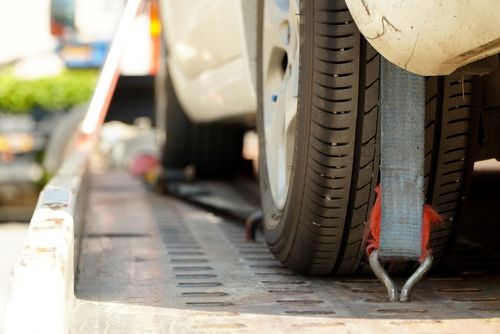When life throws a wrench in your travel plans, a reliable towing service like Allied Towing is your best ally. From roadside assistance to accident recovery, equipment hauling, and flatbed towing, our towing business is equipped with the tools, technology, and expertise to get you and your vehicle back on track. Let’s dive into the comprehensive services our towing company offers and the situations where each service proves invaluable.
Roadside Assistance
Roadside assistance is designed to help drivers handle common car troubles without needing a tow to a repair shop. Here’s a breakdown of our services provided under roadside assistance:
- Dead battery? Technicians equipped with portable jump-starters can revive your car and get you moving again.
- Tire Changes: Whether you’ve hit a nail or experienced a blowout, roadside experts bring the tools necessary to replace your flat with a spare.
- Services: Locked your keys in your car? Professionals use specialized tools to safely unlock your vehicle.
- Delivery: Ran out of gas? Roadside crews deliver the fuel you need to reach the nearest gas station.
- Repairs: Some mechanical issues, like loose battery cables or broken hoses, can be fixed on-site.
When You Need It:
Roadside assistance is perfect for:
- Dead batteries due to cold weather or extended periods without use.
- Punctured tires from road debris.
- Accidental lockouts during busy days.
- Unexpected fuel shortages while traveling long distances.
- With GPS-enabled dispatch systems, modern towing companies can quickly locate and assist stranded drivers, minimizing downtime.
Accident Recovery
In the aftermath of a collision, accident recovery services are critical for ensuring the safe removal of damaged vehicles and clearing roadways.
What It Involves:
- Vehicle Recovery: Using winches, cranes, and heavy-duty tow trucks, teams can recover vehicles from ditches, embankments, or other hard-to-reach locations.
- Debris Cleanup: Clearing broken glass, metal, and other debris to restore road safety.
- Secure Transportation: Transporting damaged vehicles to repair shops or storage facilities.
Specialized Tools and Equipment:
- Winches for pulling vehicles from challenging spots.
- Wheel-lift tow trucks for transporting wrecked vehicles.
- Gear like reflective cones and flares to manage traffic.
When You Need It:
Accident recovery services are essential after:
- Major collisions involving multiple vehicles.
- Single-vehicle crashes in remote areas or difficult terrain.
- Incidents requiring extensive cleanup or hazard removal.
Equipment Hauling
Beyond assisting stranded motorists, our towing business often offers equipment hauling services. These cater to contractors, farmers, and businesses needing to transport heavy machinery.
What It Covers:
- Transporting construction equipment like excavators, skid steers, and bulldozers.
- Moving farm machinery such as tractors and harvesters.
- Hauling oversized or specialty equipment like generators or forklifts.
Specialized Technology:
- Tow Trucks: Equipped to handle large, heavy, or awkwardly shaped items.
- Straps and Chains: Ensure secure transport.
- Lifts: Make loading and unloading heavy machinery seamless.
When You Need It:
Equipment hauling is the solution for:
- Construction projects requiring relocation of heavy machinery.
- Farm operations needing equipment moved to different sites.
- Businesses transporting large items to events, job sites, or new locations.
Flatbed Towing
Flatbed towing is a versatile and safe method for transporting vehicles and other cargo. Unlike traditional towing methods, flatbed towing ensures the entire vehicle is lifted off the ground.
What It Offers:
- Damage-Free Transport: Ideal for luxury cars, classic vehicles, or motorcycles that require extra care.
- Long-Distance Towing: Securely moves vehicles over extended distances.
- Specialty Vehicle Transport: Accommodates non-standard vehicles such as RVs, trailers, and boats.
Key Features:
- Hydraulic Systems: Allow easy loading and unloading of vehicles.
- Adjustable Beds: Ensure a stable platform for various vehicle sizes.
- Wheel Chocks and Straps: Secure the vehicle during transport.
When You Need It:
Flatbed towing is perfect for:
- Transporting non-operational vehicles.
- Relocating high-value or rare automobiles.
- Safely moving oversized or unusual vehicles.
Why Choose Professional Towing Services?
Our towing facility is equipped with advanced tools and trained professionals who prioritize your safety and convenience. GPS tracking ensures prompt arrival, while state-of-the-art tow trucks and equipment handle your vehicle with care. Whether you’re dealing with an unexpected breakdown, an accident, or a heavy equipment move, you can rely on Allied Towing for professional towing services that deliver reliable, efficient solutions.
Don’t let car trouble derail your plans. Keep our contact information handy and drive with confidence, knowing help is just a call away. Visit our contact page for any inquiries!


